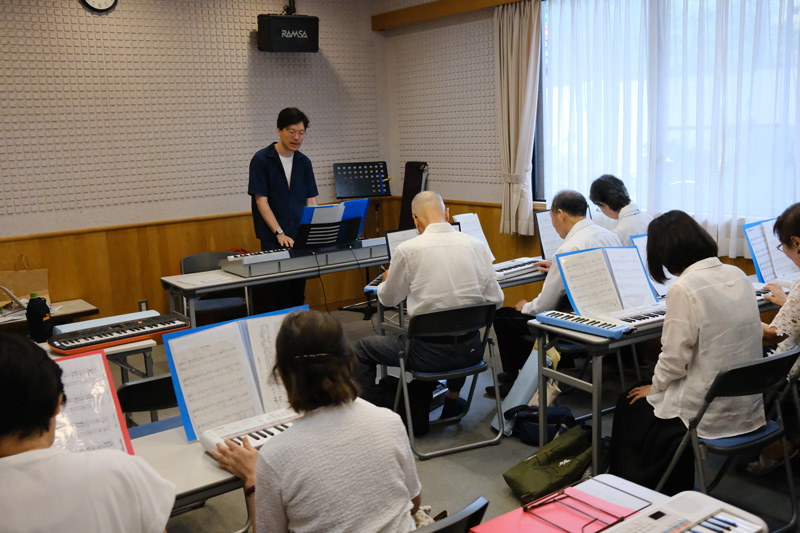Kyoto, Japan -- Those who are blessed with long lives will eventually experience a decline in cognitive functions, and working memory is particularly susceptible. However, various forms of exercise and activities that flex the brain are thought to help maintain memory function in old age.
The putamen and cerebellum are two areas of the brain prone to atrophy and reduced activity due to normal aging. Recent neuroscience research has also shown that these are the brain regions most likely affected by practicing a musical instrument. Yet most studies in this area have focused on young participants or people who have been playing an instrument since childhood.
This motivated a team of researchers at Kyoto University to investigate the effects of taking up a musical instrument in old age. Previous research from this team suggested that practicing an instrument for the first time for four months may improve memory performance and the function of the putamen for the elderly. After observing these short-term improvements, the researchers shifted their focus to the long-term effects of musical instrument practice.
Their current study involves the same participants who practiced a new instrument for four months during the earlier 2020 project, in which the participants' average age was 73 years. This time, half of the participants continued practicing their musical instrument for more than three years while the other half stopped and switched to other hobbies.
After four years, the research team conducted MRI scans, focusing on the putamen and the cerebellum in particular, while participants performed cognitive function tests, including a new verbal working memory task.
While the researchers observed no initial difference in brain structure and cognitive function, four years had left a notable mark. In the group that stopped practicing music, verbal working memory performance declined and the gray matter volume of the right putamen decreased, but the group who continued playing their instruments did not experience such decline in performance or putamen atrophy. Furthermore, the researchers observed higher activity in the bilateral cerebellums over a wider area in the continue group than in the stop group.
"We were surprised to find that the effects on the brains of elderly people who start and continue practicing an instrument were also concentrated in these two areas of the brain, and that this was an effective way to prevent age-related decline," says corresponding author Kaoru Sekiyama.
The results of this study suggest that practicing an instrument may make it possible to prevent or postpone the decline in cognitive function that occurs with healthy aging. It's never too late to start playing an instrument, and starting in old age may have major benefits.
"For those who struggle to engage in physical activity due to body pain or other problems, playing musical instruments can be a great alternative. How fortunate that practicing music has such a positive impact on the brain and cognitive function!" says Sekiyama.

【DOI】
https://doi.org/10.1162/IMAG.a.48
【KURENAI ACCESS URL】
http://hdl.handle.net/2433/294858
Xueyan Wang, Masatoshi Yamashita, Xia Guo, Lars Stiernman, Marcelo Kakihara, Nobuhito Abe, Kaoru Sekiyama (2025). Never too late to start musical instrument training: Effects on working memory and subcortical preservation in healthy older adults across 4 years. Imaging Neuroscience, 3, IMAG.a.48.





